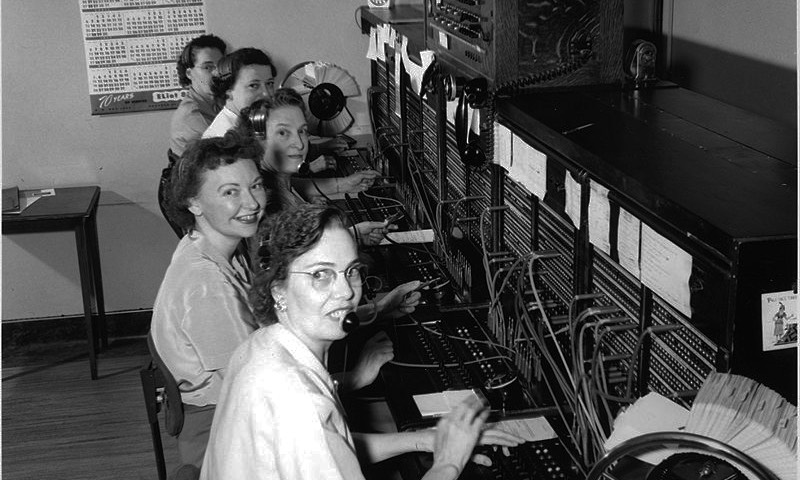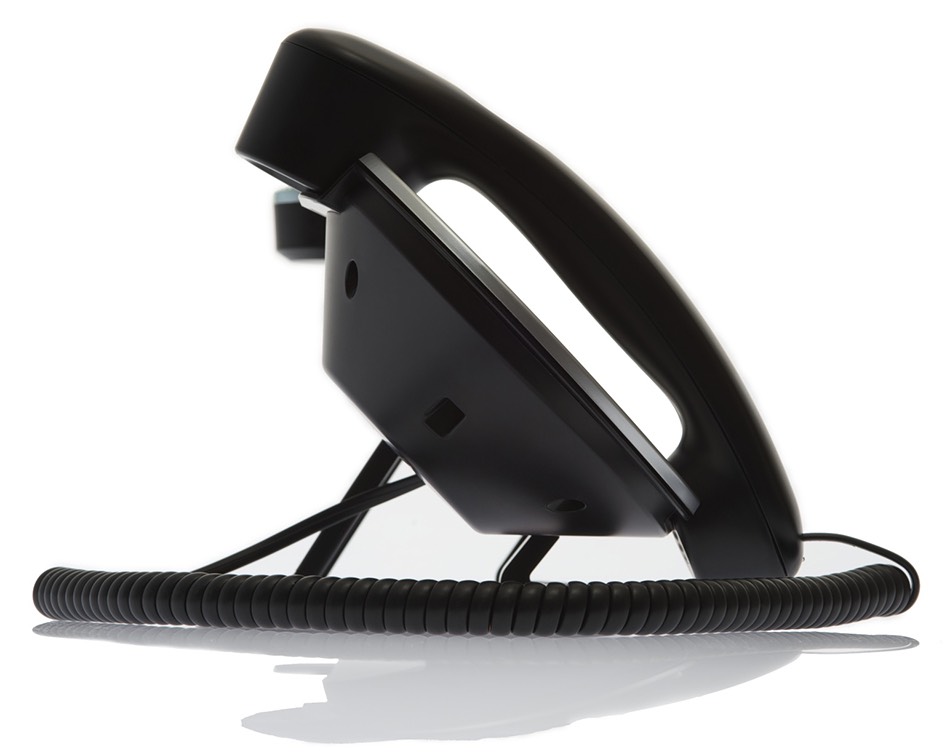Will existing phone hardware work with a new VoIP phone system?
We will discuss the various reasons why you may or may not be able to use your existing technology, and do our best to answer this complex question.
Just the other day I was in a meeting with a client who was somewhat apprehensive of moving forward with a new premised based VoIP phone system. I could tell something was holding them back from moving forward with the project, so we hashed a few things out.
Turns out, my new clients had a simple question and were not sure how to ask it properly. At the base of their hesitation, they simply wanted to know if their existing phone equipment would work with the new VoIP phone system at their business.
Now, whenever we hear this, and we do hear this frequently, we've found it really boils down to two reasons why folks are asking us this.
- They don't want the additional upfront costs of buying new equipment.
- They don't want to learn how to use new equipment.
Regardless of the reason why, we'll discuss when you may or may not be able to reuse your equipment, so let's dive into it.
Will my existing phone hardware work with a new VoIP phone system at my business? Yes or No?
Before we dive in headfirst, let me give you the overly simple short answer.
If you are looking to get all the advantage of a brand new, shiny VoIP system at your business, the answer is probably no, you can't. You'll need new hardware and technology to take advantage of all the benefits and tools a VoIP system has to offer.
However, you can re-use your current phone system if you are looking solely to replace your local and long distance carrier (i.e. Verizon phone lines or T1 phone circuit) to reduce costs and have improved disaster routing planning. For instance, a lot of folks wonder what happens to their VoIP phone system if the internet goes down. Here's a hint: if you're using new VoIP equipment you're alright. If you're using some old and some new, you might be out of luck.
But I said probably above because there are some reasons and times when you might be able to use your equipment, and times when you can't. These scenarios are best explained when paired with the two main reasons people ask about re-using equipment in the first place, which are either price or unwillingness to learn new equipment, so let's discuss.

You can't reuse your phone equipment on a new VoIP phone system at your business because traditional premise based phone systems don't "play nice" with VoIP lines.
In order to get your current digital or even hybrid phone system to function with VoIP lines natively, a 3rd party/middle gateway device has to be installed so the VoIP Lines can function with your phone system.
This 3rd party device is another piece of technology that can fail, may need support and lock up at times causing your phones to shut off. Simply put, in this case the answer would probably be yes that you can use your existing equipment, but you'll still need a new piece of equipment regardless.
So, if you're worried about cutting cost or learning new equipment, but not getting the new VoIP hardware that a company like us would recommend, you'll instead need alternate new hardware that's usually going to need to be professionally installed and maintained.
Meaning, you're still needing to learn a new piece of equipment, and your still spending money. Why bother?
Another thing to consider is that most VoIP providers can, or usually will build the price of your new equipment into monthly installments, meaning you're not going to be hit with a several thousand dollar equipment charge up front.
The new VoIP service provider won't be able to interact with the existing phone hardware at your business.
In virtually every case where folks are electing to keep their existing hardware, the new VoIP provider is going to hit a brick wall at some point during the instillation or servicing the system.
The problem is, the VoIP service provider in almost every case won't be able to assist in any way with your current phone system. For various technical reasons which I won't geek-out over right now, they most likely won't be able to interact with your existing hardware to some extent. Meaning, if there's an issue during the installation you would have to have your current phone hardware vendor ready to help.
So in this instance you'll have the new company installing your system and you'll be paying another company to service your existing technology. The overlap here can get expensive, and it really doesn't make any sense from a financial perspective.
But why can't everyone play nice? Why is this the case? VoIP phone providers typically have no knowledge or ability to service your current phone system. Additionally, VoIP Phone providers are typically located far in distance from your office in other states so on-site service is not possible, unless you elect to use a local VoIP provider at your business as opposed to a national level provider.
The phrase too many cooks in the kitchen rings true here. For example, in order for the porting and switch over to be smooth both your current phone provider and new VoIP provider's support staff need to make sure everything goes well during the process.
Again, keep some of your existing equipment, get some new VoIP equipment, and you're still stuck with a higher bill. This is sort of similar to the point above, where in you're going to have extra costs that you're hoping to avoid by keeping your existing technology.
Now this is something we see a lot, as some unscrupulous VoIP service providers will downplay because they want to sell their service and avoid objections in the process, which leads me to…
Some national level VoIP providers may yes you to death and tell you "of course your existing phone equipment will work with your new VoIP phone system!"
We see this a lot when transitioning folks who have VoIP service with a national level provider to our services.
Simply put, these providers will tell you everything is going to work fine, they'll be minimal issues, and you'll barely have to lift a finger to get things working.
9 times out of 10 this just isn't reality.
Since national level providers don't provide onsite support, you'll either have to use their remote support to get your system up to speed, or hire an IT or telecom consultant to work with the provider to get things set up. Then add in the difficulties of making your existing equipment communicate with new VoIP equipment, and this can be tricky and costly.
This is really just a warning, but we like to tell people this regardless since this does happen a fair amount, at least from our perspective.

If you want to cut costs when upgrading to a VoIP phone system at your business by keeping your existing hardware…
You may be in luck. Despite the above warnings, there are circumstances when you can keep some of your existing hardware, aside from the initial example I mentioned above.
Possibility #1
If you're currently using a brand of IP phones such as Cisco, Yealink, Aastra, or Polycom phones, there's a chance, not a guarantee, but a chance, that you can continue to use them because they can function with most VoIP data centers. This would save you dollars on acquiring new physical IP phones and still give you the added functionality of using a VoIP phone system at your business. But like I said, no guarantees!
Possibility #2
If the VoIP provider you switch to can service your existing telecom hardware than this eliminates a huge risk for the customer. Here's the catch: this isn't common at all, but theoretically it's possible.
We tend to see this as a reality if the VoIP company you're switching to is a certified dealer on the system you currently use. This is sometimes the case if your VoIP Phone provider is also your local telecom vendor. Again, it's possible, but not common, so don't bank on this.
Some folks want to use your existing phone equipment because you don't want to learn new technology.
You're not alone. We hear this all the time, and it's a completely natural reaction.
If the transition & training from old to new isn't handled correctly, this can be a big headache. I'm not going to lie, we've heard horror stories of some of our competitors not providing enough support or training, and leaving their customers hanging out to dry or figuring it out themselves.
The truth is that new equipment should be easier to use than the old equipment anyways.
Think of your mobile device. With every new version and new update of the software, are they getting easier or harder to use? Sure Google and BlackBerry and Apple all have their ups and downs, but technology is generally becoming more user friendly as time goes on. The same concept applies to desktop phones and software as they do to the mobile world.
Additionally, new phones have training literature available in the form of quick guides, educational webinars and YouTube videos. Also, the company you hire should train you on-site to make your experience better.
And, since many features of a VoIP system are controlled via a web-portal, screen sharing technology ensures that you can get the training & help you need regardless of whether or not someone can physically visit your office that day.
Your existing phone equipment & hardware isn't recommended for new VoIP phone service at your business.
To answer the question very simply, it is possible to re-use your current phone system.
But, it's not recommended. It can be more costly and confusing, and for folks who are looking for an easy system to manage and maintain, and are trying to keep to a budget, using your old equipment just doesn't make sense. It's not recommended and it's not the safe choice.
Most importantly, replacing your technology and phone equipment is a good long term decision for your business. Think about it, if your phone system is 5 years or older than it’s probably the oldest piece technology in your business.
For the vast majority of our clients, we recommend that the cleanest, easiest, and safest move is to get new phones and equipment, and let us handle everything. Now that might sound somewhat biased, but our goal is to get your new system up and running as quickly and efficiently as possible, and we do that through using knowledgeable installers, quality products, and solid training so we can be in and out as quickly as possible, because you've got business to get back to.
While we understand it’s easier to not invest in improved voice communications, 9 out of 10 times your far better off replacing your dated equipment. I know it's not exactly what most folks want to hear, but it's the honest truth.
Here's a simple rule of thumb: if your current phone system is older than your youngest intern, you're going to want to upgrade your equipment.
To learn more about VoIP phone systems and the hardware we recommend and use, you can click here to contact us online, give me a shout directly at vin@tele-datasolutions.com, or touch base with me at 908-378-1218.
 By Vincent Finaldi
By Vincent Finaldi
Vice-President, Tele-Data Solutions
E-mail: vin@tele-datasolutions.com | Direct Line: (908) 378-1218
What brings me satisfaction is meeting with New Jersey–based businesses and genuinely helping them solve communication and business problems. As someone who has lived in New Jersey my entire life, I love working and playing here. I live in Morristown with my wife, Lisa, and root for the New York Giants.


